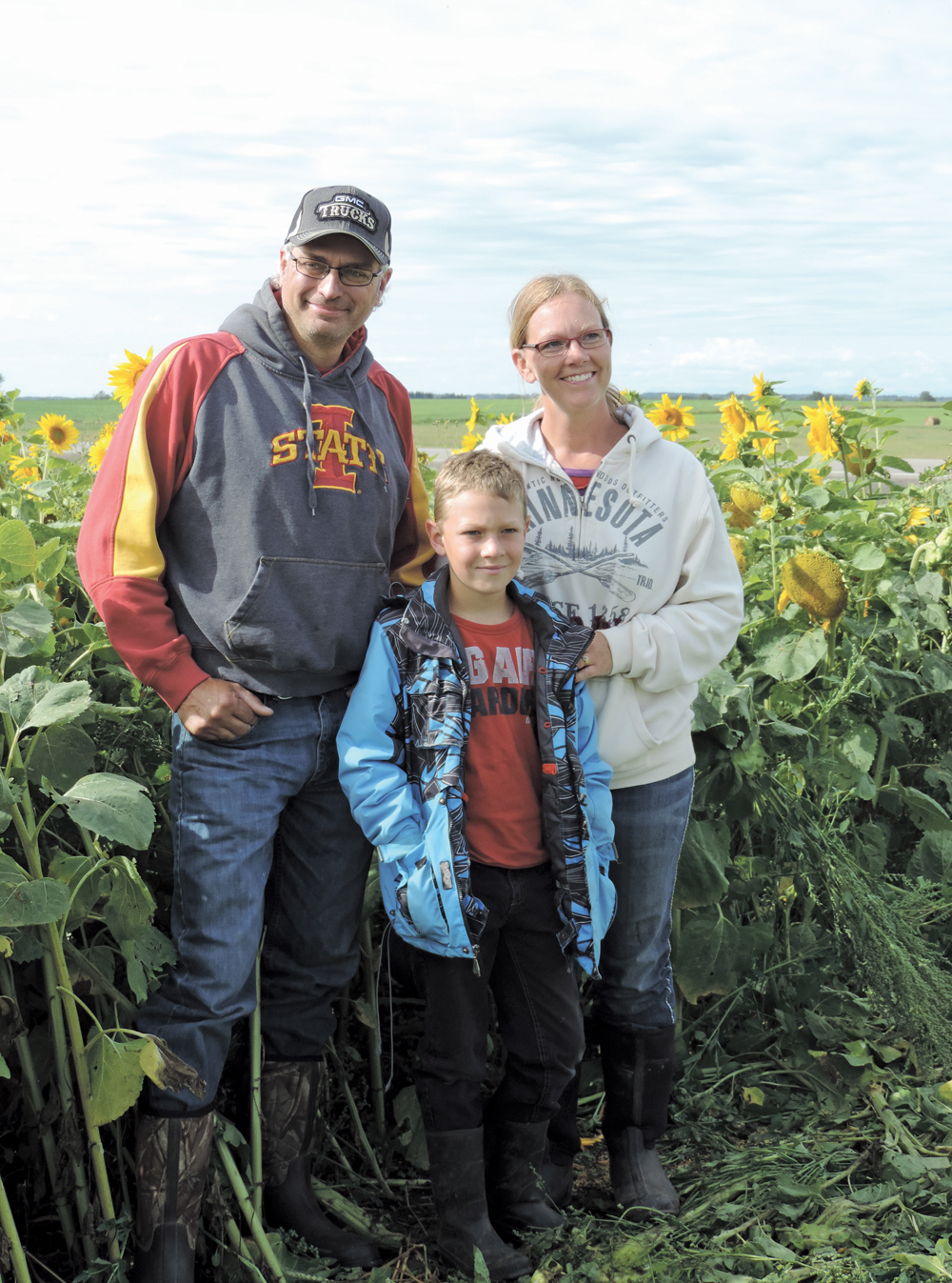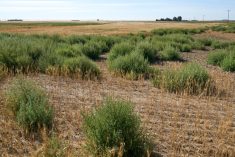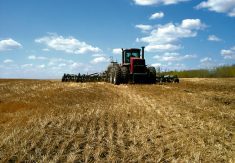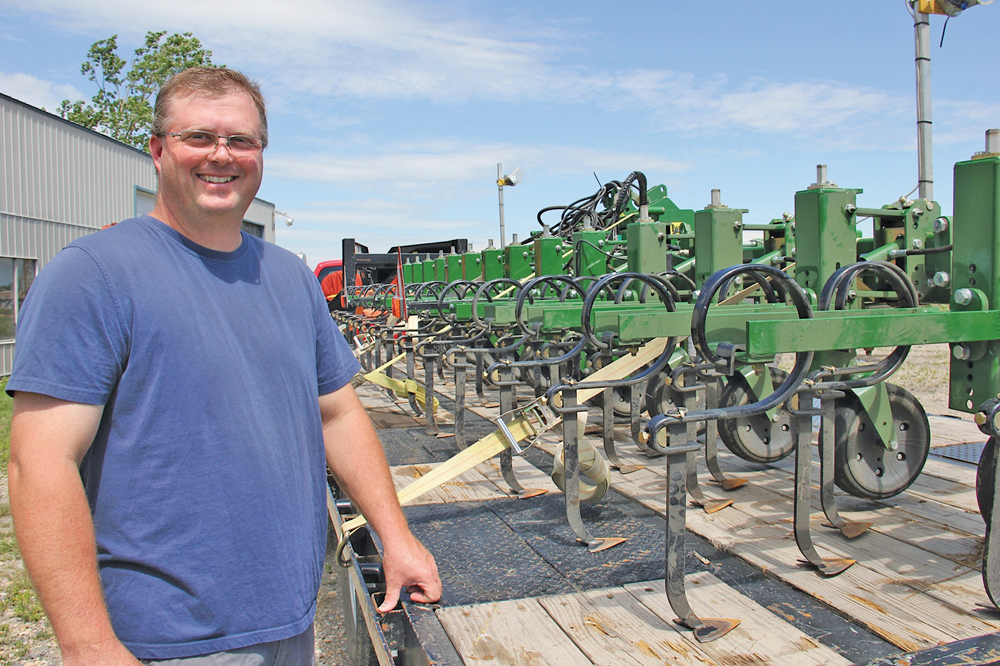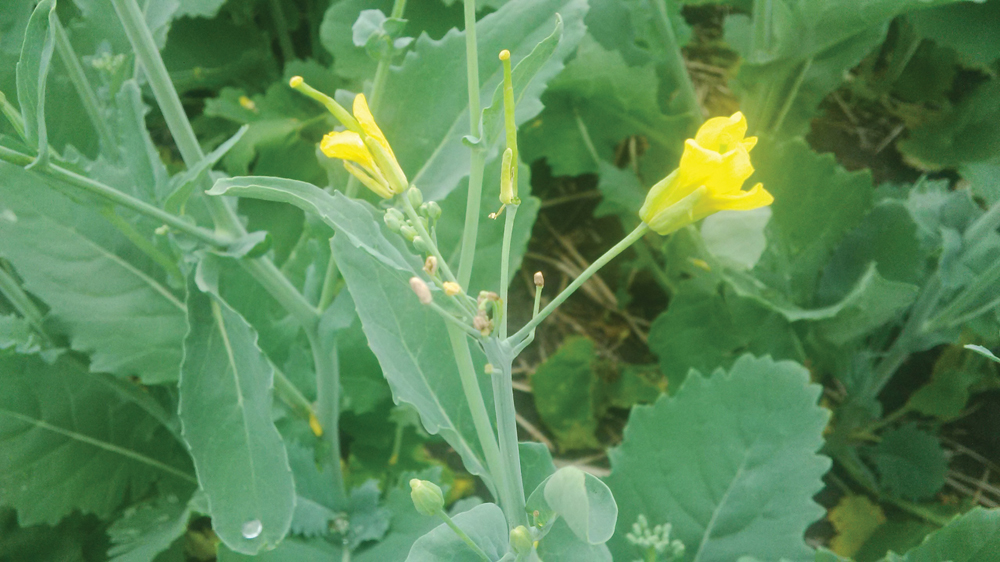When someone told Roger Bott, he couldn’t grow sunflowers in his part of Alberta, he was determined to try.
Eight years on, Bott and wife Bonita — and a lot of residents of Clearwater County — are glad they did.
“People are also really enjoying looking at the sunflowers when they’re on the highway,” said Bott.
They’re not the only ones. The couple grows early varieties of black-shelled sunflowers for birdseed, and bird lovers are happy to have a local supplier.
“It’s a little cheaper to buy than in stores, and people love coming out to the farm and picking up their birdseed,” said Bott. “When you stick your head in a bin of this fresh sunflower seed, it just smells so spicy. The fresh stuff coming off the fields is really nice smelling and the birds love it.”
It’s a niche crop — the Botts grow about 10 acres each year, with each acre yielding about 2,000 pounds of sunflowers — but one that, at first glance, seemed a poor choice. Clearwater County only gets about 95 frost-free days, so later-maturing varieties don’t work. And there’s no weed control options for early-season varieties of sunflower, so the crop must move to a new field each year.
Peas, cereals, and canola have been the mainstays on Providence Acres, but the couple wanted to diversify. They’ve experimented with soybeans, corn and giant pumpkins, but sunflowers are looking like a good bet to become a permanent part of their rotation.

“We’re starting to get the confidence to put the sunflowers in the rotation, and our confidence has been gaining every year,” said Bott. “We keep planting them and taking a few acres out of the rotation to do that. We keep having success.”
The crop is planted around May 10, using a Flexicoil 5000 air drill with nine-inch spacing, and a heavy seeding rate. Rather than use their own seed, the couple buys from a seed grower in Ponoka.
“We know that in this country we’re always dealing with short growing seasons, so if we up our seeding rates, we can cut back on our maturity,” Bott said during a farm tour organized by Clearwater County Agricultural Services and Landcare.
Read Also
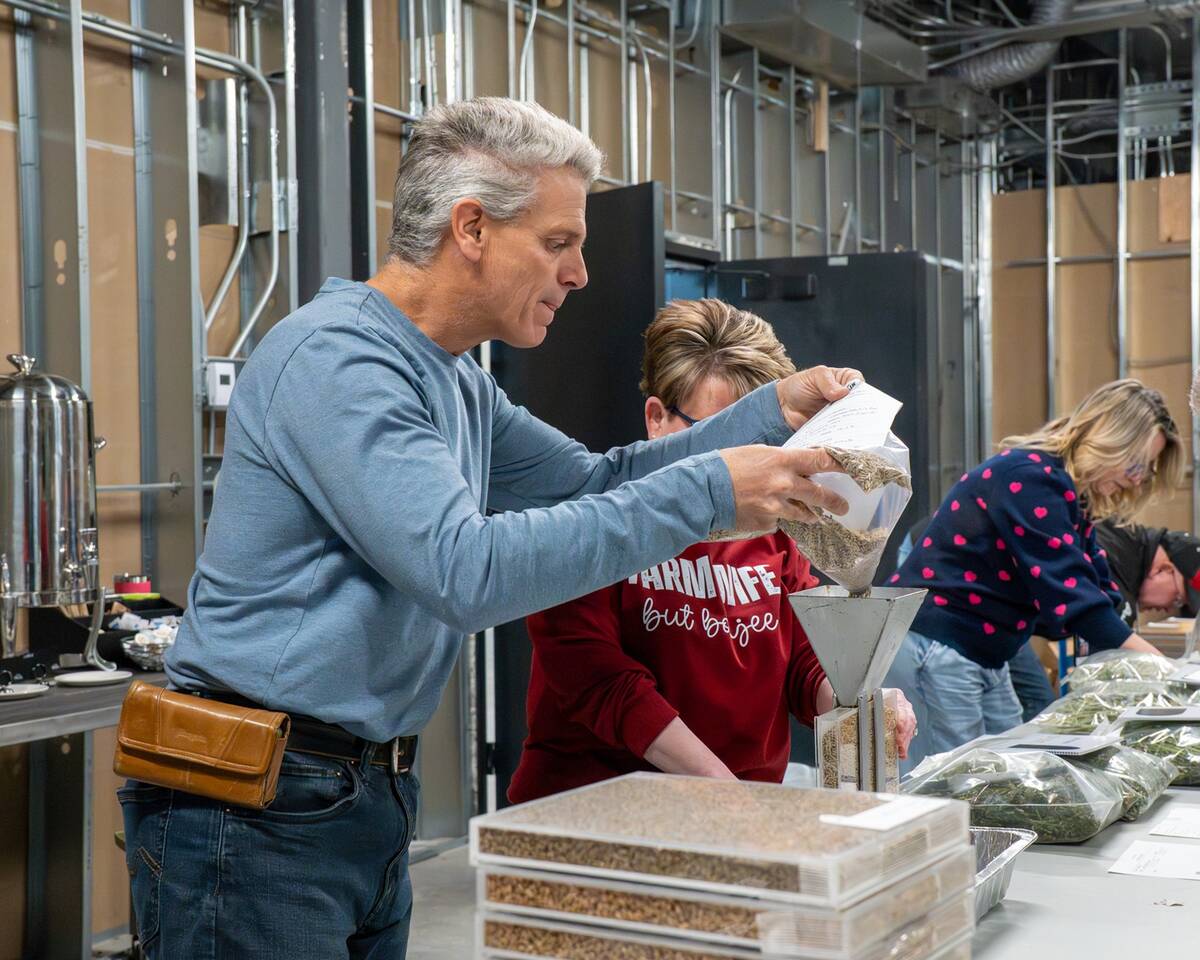
North American Seed Fair continuing a proud 129-year-old agricultural tradition
One of North America’s longest continually lasting seed fairs makes its 129th appearance in southern Alberta.
A high plant density forces the sunflowers to compete against each other for resources, so they set seed faster and mature earlier. They don’t require any fertilizer or additional inputs and have no disease issues. Plants are straight cut in late October or early November, when they are at about 10 per cent moisture and have been hit with a frost.
“When the plants are ready, you just tap them and the seeds fall out when they’re ready to harvest,” he said.
The sunflowers don’t need to be dried for storage. The stalks get chopped with a combine, and then the field is disked and the stalks disintegrate. The organic matter is left on the field, which may provide a nutritional benefit for the crops grown there the following year.
It’s not the only way the couple is diversifying their operation, they also sell flowers for weddings and during the Leslieville Antique Days as well as flower shops in Rocky Mountain House.
This year’s sunflower crop was the best yet, but Bott said he’s not going to expand acreage too quickly.
“That step you make from 10 acres to 50 — that’s a big step.”


